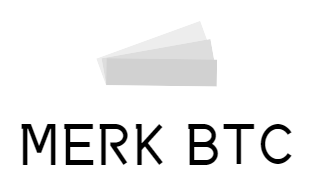Guess Who Might Be Buying $BTC? Grayscale, the Power Behind $GBTC
Grayscale Investments, the world’s largest digital asset manager, has taken an equity stake in exchange-traded fund (ETF) issuer ClearShares – just as the issuer converted one of its ETF ticker symbols, from PIFI to BTC.
The move comes a little over a week after Grayscale confirmed that it was committed to converting its Grayscale Bitcoin Trust (GBTC), to an ETF. Among competition from other closed-end funds and bitcoin ETFs in Canada, GBTC has been trading at a discount for more than a month. Grayscale is a subsidiary of Digital Currency Group, CoinDesk’s parent company.
“Grayscale has taken an ownership stake in ClearShares as part of its long-term commitment to bring digital currency ETFs to market, with the potential to collaborate on products with investment strategies related to the digital currency industry,” a Grayscale spokeswoman said.
Bitcoin ETFs have seen renewed interest in 2020 and 2021 as vehicles that would allow retail and institutional investors exposure to the asset class when they don’t want to touch bitcoin itself. In the past, the SEC has rejected every bitcoin ETF application, but incoming SEC Chair Gary Gensler could change the regulator’s attitude to the novel investment product. Gensler is a former Commodity Futures Trading Commission (CFTC) chairman who has taught crypto and blockchain courses at MIT in recent years.
Converting ETFs to a different strategy is common among issuers, Seyffart said. One such example was when ETF Managers Group converted a Latin American Real Estate (LARE) ETF to a marijuana ETF with the ticker symbol MJX (later MJ).
It’s unclear whether Grayscale bought a minority or majority stake in ClearShares. CoinDesk reached out to ClearShares to clarify the terms of the deal, but an external spokesman who works with Grayscale responded instead, saying Grayscale would not comment on the terms.
While Grayscale has been hiring ETF specialists, it’s possible the investment manager could be planning to use ClearShares to launch its ETF business or its stake may be part of buying the rights to the BTC symbol, Seyffart said.
“Exchanges own the tickers and issuers can put a ticker on hold for a number of years or certain time period if an issuer has the rights to a ticker at a specific exchange that could be valuable,” he said.
Coinbase, for example, went to Nasdaq for its public listing because the exchange could offer it the COIN ticker.
Previous: Ether Breaks $2,500 for the First Time in Wake of Berlin Fork
Next: Coinbase Listing Brought Attention to Crypto, Says Tezos’s Kathleen Breitman
